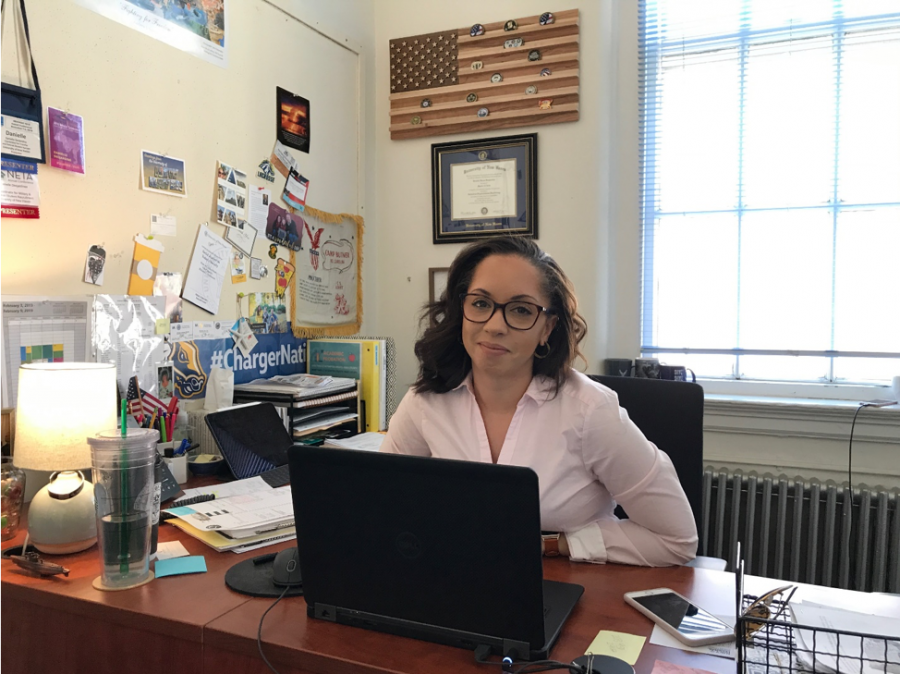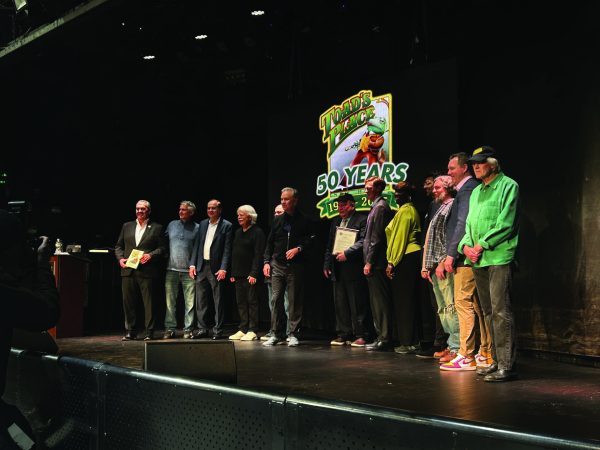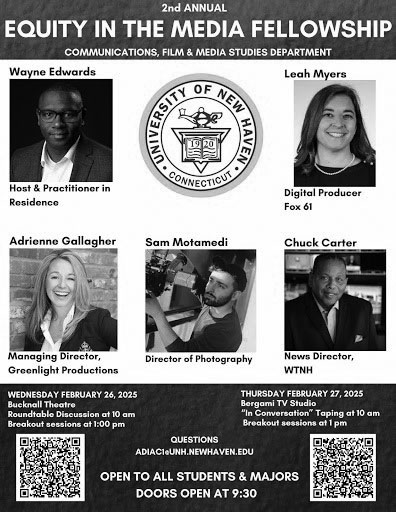University Assists Transitioning Veterans
Danielle R. Desjardins at the Veterans Support Center.
The transition from the intensity of military service is a huge contrast to a sedentary classroom.
The challenges are many. Most veterans trying to assimilate to an academic lifestyle are faced with the challenge of being a first-generation student. Most veteran students are older than their civilian peers, are married with children, and in some cases, struggling with mental and physical disabilities.
According to the Veterans’ Association (VA) over 20 million veterans in the United States of which less than 10 percent are enrolled in higher education. The University of New Haven provides veteran students with resources and support in order to secure their success.
University veterans’ representative/coordinator for transfer and veteran success, Danielle R. Desjardins, is part of University of New Haven veteran support network. She works with the existing and incoming veteran students. Veterans who need guidance when dealing with the Veteran Association (VA) benefits administrative process may rely on Desjardins.
“I love them, genuinely as corny as that sounds!” said Desjardins. “I come from a family who always valued and respected service to our country.We have a core team of people who will go to battle for our vets. We know each student veteran and establish authentic and genuine connections with them that reaffirm to them that there are people here who care about them as a person and as a student.”
Drake Myers, army veteran and nutrition and dietetics major, said he relies on the veteran support from the university’s veteran program.
“UNH has a staff dedicated to veteran success that are always available and willing to help. I have utilized them multiple times when nobody else was willing or able to help,” said Myers.
The veteran population, according to the University of New Haven, is small, with about 230 to 300 students any given semester. Although these numbers are marginal compared to the University of New Haven’s civilian student population of 5,216, veteran support is not marginalized.

“Many veterans were entering school for the first time, trying to work through the red tape of the VA and university policies,” said Joseph Frederick, assistant director, outreach and technology coordinator of veteran services. “I wanted to make the process as easy for them as possible, so all they needed to worry about was their schoolwork. I think all of our staff try to do that as best as we can.”
The university offers their veteran students amenities such as the Veteran’s Center, dedicated staff members to work specifically with the veterans and a veteran’s emergency fund to help students with financial obligations. The center provides them with an oasis away from the general population, and gives them an arena to interact with fellow veterans. Inside the center are computers, printers and bulletin boards filled with employment opportunities as well as a mess hall and common area for watching T.V.
“Veterans clearly have more life experiences than the general population of students,” said Frederick. “They can provide a different perspective to many of the classes that they are in. I think many veterans are more motivated to complete their education and begin a new chapter in their lives.”
Military members go to rigorous military schools such as Officer Candidate School or Warrior Leadership Courses, which require a high level of discipline and dedication. This type training and education instill the work ethic necessary for success in civilian colleges.






